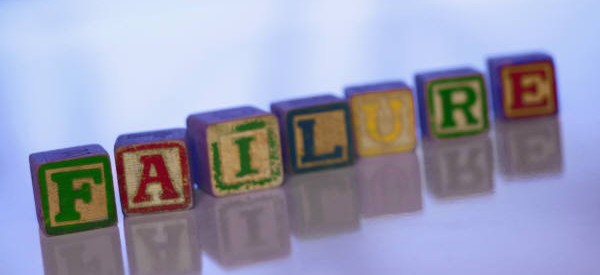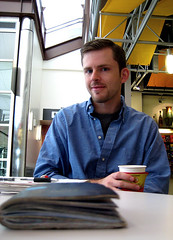I’ve learned to closely examine my tripping points to look for solutions.
By tripping points I mean the places in my routine where I fail to see something through to completion, whether it’s a household task, a writing project, or a personal phone call I’m just not making.
Tripping points can occur at any point in the continuum of a project or task, from start to finish.
Tripping points lead to incompletion
As I’ve studied my own process and observed my clients as well, what I’ve found is that we collectively have a tendency to either skip over key steps or fail to think through the full process.
Both of these have the same result: incompletion.
Find a higher thought
I think the inception of this exploration began back in my 20s when I was working with a therapist and I used to write my checks to her at the end of the session. There was always an awkward moment, waiting for me to do so. One day she said to me, “Other clients write out checks in advance.”
It was a new thought, something I hadn’t considered. I even realized that I was drawing out the time with her by waiting to write the checks at the end. I vowed to change my pattern right away. From that day forward, I always arrived with check in hand and had the matter settled from the start.
The tiniest things make a big difference
When it comes to getting things done, I’ve learned that the tiniest things make a big difference many times over. With my writing, for example, if the computer is right next to me when I wake up, I’m much more likely to work on my script right away — particularly if I’ve closed my email program before lights out the night before.
Mind you, I’m not always perfect about everything (thank goodness, or my inner rebel would freak out) but it’s highly useful to know the tricks that will get me into action. That said, I still have some lingering items (that darn video!) that need work.
The 2 second rule
I read recently (I wish I could remember where, if you know please tell me) about a guy who wanted to read more but was always turning on the television instead of picking up a book. His solution was to take the batteries out of his television remote control, making it just that much harder (2 seconds harder) to turn on the TV — and he found himself reading a lot more.
I’ve seen writers in my Writer’s Circle do similar things — making sure their writing materials are at the ready so that when they wake up, it’s easy to get started.
I’ve heard about a virtual assistant who keeps post-it notes on her fridge to track her hours and to do items so it’s extra easy to jot it down rather than having to dig out her work notebook.
I keep magnetic note pads on my refrigerator and have a system for keeping my pantry filled: If something gets taken out of the pantry, it goes on the list. We always have an extra bottle of ketchup that way. (Good thing with little kids around, and in earthquake country to boot.)
Your turn
How could you apply this idea to make getting something done easier? I’d love to hear from you in the comments.
Warmly,

~> October 4th. My next Life Purpose Breakthrough Group. SOLD OUT. http://LifePurposeBreakthrough.com
~> October 25th. Register by October 25th for the next 4-week session of my “Just Do The Writing” Accountability Circle (starts October 29th). Looking to feel passionate again about your writing? You must write to get there: http://JustDoTheWriting.com
![]()
~> Ongoing. Working on rewriting my script, Progeny, with my mentor Chris Soth after finishing the ProSeries.*
~> Sacred writing time. My schedule is in flux right now but I’m writing regularly nonetheless.
~> Reading: Harry Potter & the Deathly Hallows with my son — so close to finishing now! I think we’re going to read Eragon next. Or maybe Narnia, or The Belgariad. I can’t wait. I’m deeply enthralled by Homeland, finally saw the finale of Weeds (weird), and I’m so happy Castle is back on the air. *Grin*
* Affiliate link









 Chris Guillebeau, author of
Chris Guillebeau, author of 
